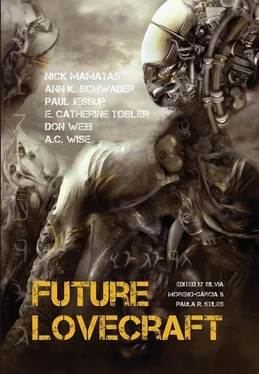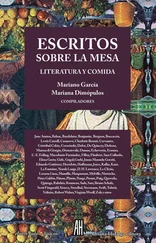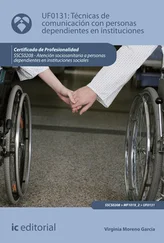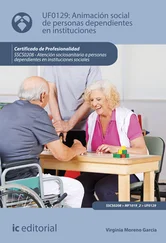I do not know if this is true.
The most popular, story of the origin of the disease was that some Fulani nomadic cattle herders in northern Nigeria, victims of HIV, had intercourse with their cows. The HIV virus in their bodies reacted with another virus in the cow’s body and it resulted in a mutated AIDS. The ADAIDS was transmitted to Igbo prostitutes in the southern part of the country (The tribal people used to believe they could literally march through hellfire if money were discovered in the Devil’s hand) by those nomadic cattle herders, and to their women when they went home. With time, thanks to sex, as a fire that catches a cluster of palm thatch roofing spreads, the disease spread everywhere.
To worsen matters, the government stretched out its hand to non-foodstuffs. We were constrained to watch only one local TV station and also to listen to one radio station. Two of my favourite programs, Hyper Fear and Dance like the Dead , were struck off and their producers reassigned. They gave us the same reason: “lack of manpower”.
One amusement park was permitted in each state and a maximum of three secondary schools. All the universities were reduced to one, with only two faculties: Medical Sciences and Engineering. They believed that the medical academics were the only relevant faculty that could handle the plague of ADAIDS. As for Engineering, they kept the infrastructure from breaking down. So, we still had electricity. For the rest: “a waste of manpower”.
I found out from afternoon broadcasts of the BBC and Radio Nigeria that the UN had abolished the flow of aid workers to the country. Soon, I ceased to hear any further pronouncements made by the government. One day, like a joke, the government was dead! Gone. No more announcements, no nothing. It dawned on me that, with the death of the government, other things, like electricity, would follow suit.
I decided to place an announcement at Radio Nigeria, the only surviving station and the first to be established immediately after the independence.
The announcement would invite everybody living in Enugu City to come and live in Uwani Town, to fight loneliness with ‘African communalism’, since the disease was winning every other battle. I was sure not all of us had contracted the disease. I hadn’t.
I was not at risk. My illiterate mother had not taken prenatal vitamins during her pregnancy. So, I had contracted a disease in youth that had rendered me a eunuch. But I had hopes that married couples who were faithful to each other and children would also survive.
At first, I was optimistic. I walked out of my bungalow, where I lived alone on Nnaji Street in Uwani. The street was empty. One could hardly recognise the black colour of the road tar. Mud had painted it red.
I walked to the major road, where I would get a bus-taxi that would take me to the station. For hours, I stood waiting. No taxi came. A Peugeot pickup drove past me. The back was loaded with a corpse. Two young men were sitting in the front with the driver. I didn’t need any person to tell me where they were going. I had done a similar thing in my street many times. The corpse was going to be disposed of in a big pit dug at the outskirts of town. They would then incinerate it.
It eventually became clear to me that taxis had died a natural death, just like our government. I decided to go back home and use my car. I still had gas.
When I got to the radio station, I was lucky to see the studio manager, Mr. Dudu, standing, arms akimbo, in front of the building. A man as short as Zacchaeus. God forgive me; I hope that is not a cliché. We shook hands. I told him of my mission. He accepted, but quickly informed me he had just broadcast an announcement: The disease had developed a more virulent strain. Any person who remained with a victim of the disease in an enclosed area for about two hours would also become infected. He said that a Professor Dimbo Theresa from the University of Nigeria had brought him these findings and asked him to air them. The manager then warned me of the dangers of gathering a large crowd of people with my intended announcement.
I considered his warning. There were few of us left in Uwani and plenty of houses for the remaining people, if the mortality rate here had been the same as in other Enugu towns. I was sure there wouldn’t be any risk of transmission.
He agreed and my announcement was a success. People turned out, though few in number. To my surprise, Professor Dimbo Theresa was among those who came to join us.
The few of us who remained eagerly waited, listening to the news to hear which new government would seize power, but none came. We were still waiting when the last surviving radio and TV stations vanished. The first day I turned on my radio and was confronted by the reality that the station was no longer working, it seemed to me like a doomsday. But weeks later, we had all become accustomed to the new reality.
As time went on, and people died out, I had to drive my car from where I was living in Uwani to New Heaven, Abakpa and Emene to see if anyone was still there. I usually did that with an old Peugeot pick-up. The reason was to avoid disease transmission. If I saw anybody, that person would have to stay in the open, in the back, during the journey.
But apart from the few of us who were still living in Uwani, I found no other human life in the other cities.
I decided to expand my search. I moved from Enugu City to nearby towns. I headed towards faraway Ninth-Mile, at the other end of Enugu State. Dominated purely by Igbo tribes, the indigenes there had been converted to Christianity, like those who had lived in Enugu. The difference was that, in other towns in Enugu, apart from Abakpa, there were also non-Igbo tribes and Muslims.
I stopped along the way to fill my tank. When I reached a filling station, it was deserted. I remembered, just a few years ago, how boisterous the place had been. I could still recall how I had maneuvered to get my tank filled first, especially during times of fuel scarcity. Such actions usually elicited howling and shouting from other drivers. I lusted for those times now.
There was no attendant to refill my tank. It occurred to me that, if the fuel was exhausted, there was no one to ask for more. There was also no electricity and I soon found I couldn’t refill my tank. I looked around, hoping for a lucky break.
Some parts of the roof of the filling station had been blown down by wind. The white paint of the walls had been washed by the rain. Green lichen had started to grow on the side of the building.
I went into the building and pushed a door open.
I was surprised that the door wasn’t locked. I had been thinking I would have to break it down. Under the dust and cobwebs, the pink paint on the wall remained intact. I guessed that it was the manager’s office, because, sitting with his head bent on a table, was the decaying, stinking corpse of a man. Beside his head were bundles of money. “Igbo and money, just like bread and butter!” I murmured, as I quickly closed the door.
The next door was locked and I had to search for the key in the manager’s pocket, holding my breath. Inside a small room sat the station’s generator. Thank God it functioned, as did the fuel pump—a miracle. I got my tank filled and drove off. The road was lonely. Not a surprise. I knew it would demand another miracle for another car to drive by. If that ever happened, I would celebrate.
When I reached Ninth-Mile, I had to slow down, peeping through the windshield. No one was in sight. I then took a path that led to the heart of the town and parked at a village health center, a house with green walls. In the old days, the place would have been crowded with people waiting for a doctor. By now, tall, elegant grasses were already overtaking the area.
Читать дальше












